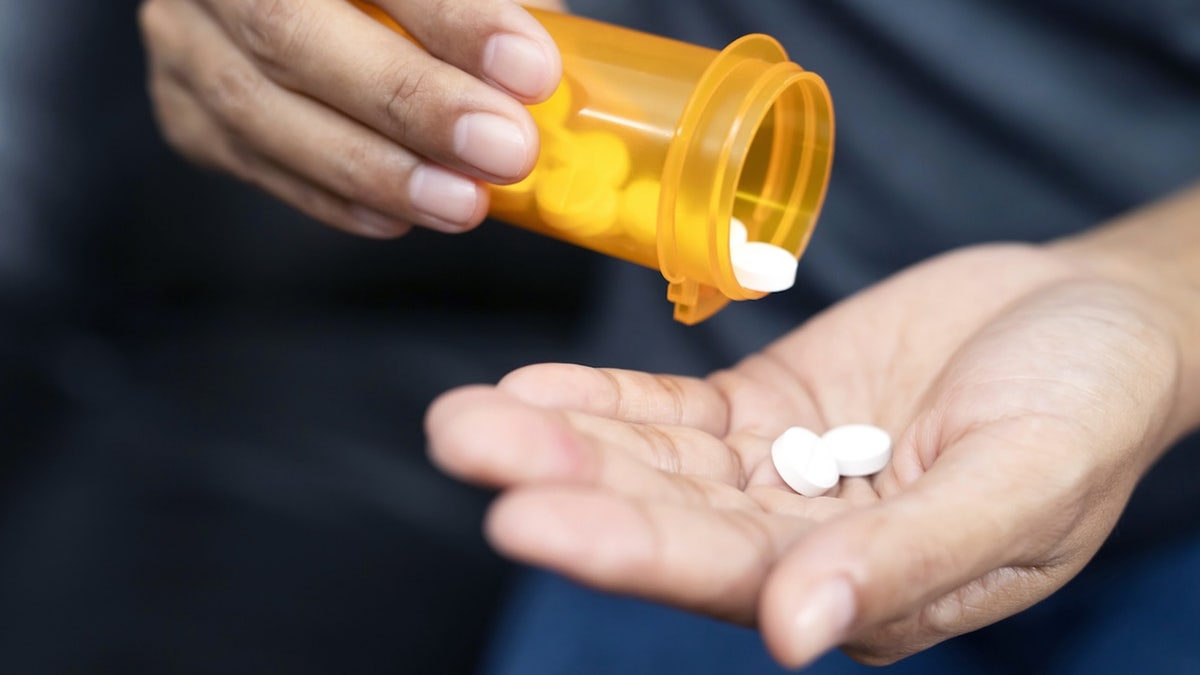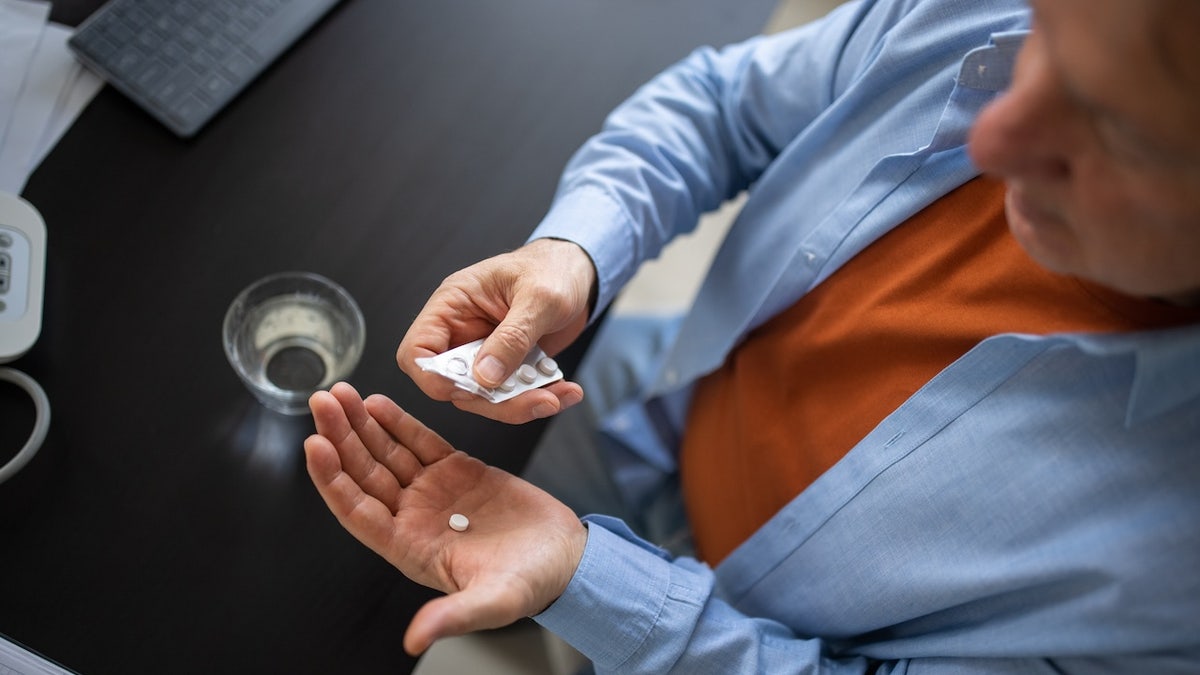A new medicine has shown promise to combat Parkinson’s disease while minimizing unwanted side effects.
It was found that the pill once a day, Tavapadon, relieves the symptoms (including rigidity, coordination, tremors and movement) for a longer period of time for patients who also took at least 400 mg of levodopa a day and experienced “ motor fluctuations ”, which are periods of time when medication is wearing and symptoms, according to the symptoms.
To date, Levodopa has been the standard first line treatment for Parkinson’s patients.
Parkinson
The levodopa, which becomes dopamine in the brain and aims at Dopamine receptors D2/D3/D4, has been linked to side effects that include sleep disorders, hallucinations, impulse controlled, increased behavior, weight gain, swelling of legs and changes in blood pressure, according to researchers.
A new medicine has shown promise to combat Parkinson’s disease while minimizing unwanted side effects. (Istock)
In the study, it was found that Tavapadon, which works dopamine and directing to the D1/D5 receptors, had the same benefits as Levodopa without the adverse effects, according to Hubert H. Fernandez, MD, author of the main study and director of the Neurological Restoration Center of the Cleveland Clinic.
Dance facilitates depression in Parkinson’s patients, suggests a new study
“It provides patients another option to relieve their motor fluctuations that are commonly experienced with Levodopa (the best medication we have so far in Parkinson) in the moderate stages of advanced disorder,” Fernandez told Fox News Digital.
“This global, multi-center and fundamental essay showed that patients placed in Tavapadon had significantly more” timely “and less” time “compared to those who received placebo and that the drug was well tolerated by patients.”

Tavapadon is a pill once a day, while the current medicine, Levodopa, requires three daily tablets. (Istock)
In the study, researchers measured patients’ control behavior disorders, excessive daytime drowsiness, blood pressure changes and weight changes, and found that the adverse effects linked to Tavapadon were not different from those who received a placebo.
“Of course, this is a short -term study and we have to wait for our long -term study to be really confident that our preliminary observations are true,” said Fernández. “However, we are very lively.”
“Regardless of when used, either at first or as an additional therapy in Levodopa, we think it is a gain in general.”
The researchers presented the results of Tempo 3 test at the American Academy of Neurology (AAN) earlier this month in San Diego.
For those who were recently diagnosed and have less serious motor symptoms, Fernández suggested that a dose once a Tavapadon day could replace the three -time dose of Levodopa.

“It provides patients another option to relieve their motor fluctuations that are commonly experienced with Levodopa (the best medication we have so far in Parkinson’s) in the moderate stages of advanced disorder,” a researcher said. (Istock)
“If they require levodopa at some point, they will need a lower and less frequency dose, which reduces their likelihood of developing motor fluctuations and disquines and other side effects,” he said in a statement.
For those with the most advanced Parkinson, Tavapadon could be combined with Levodopa.
In the midst of Brett Favre’s Parkinson’s diagnosis, the neurologist discusses how they affect the risk of inconvenience
“So regardless of when used, either at the beginning or as an attached therapy to Levodopa, we think it is a gain in general,” added Fernández.
Recent investigations have found that Parkinson’s cases are expected to increase by 2050, affecting up to 25 million people worldwide.
The greater increase will affect people of 80 years and over, in cases in this planned age group that will increase by 196% by 2050, they said.

Among people 80 and older, Parkinson’s cases are expected to increase by 196% by 2050. (Istock)
As the results of the long -term trial are pending, Abbvie, the Tavapadon manufacturer, will soon submit a request to the food and drug administration for the approval of the drug.
“The FDA will review the application; from there they can approve -to use it, ask more questions that may not be clear or request another study or extension to verify some results,” said Fernández.
Click here to get the Fox News app
“We hope that this new generation of dopamine agonist, being more selective in stimulating the dopamine receptor and given only once a day, is a significant improvement in the symptomatic treatment of the symptoms of the PD in the early, medium and advanced stages of the disease,” he added.
Click here to register -you are in our health newsletter
Mary Ann Picone, medical director of the MS Center of the Holy Name Medical Center in Teaneck, New Jersey, did not participate in the study, but called the results “very interesting and encouraging as a new tool to improve the quality of life of patients with Parkinson’s disease”.
Recent investigations have found that Parkinson’s cases are expected to increase by 2050, affecting up to 25 million people worldwide.
“One of the main limitations of the long-term use of dopamine is to bring phenomena and the need to dose more often,” Picone told Fox News Digital.
“The use of dopamine agonists helps to extend the long -term benefit of dopamine. Dopamine profit decrease can lead to” freezing “or episodes where patients have increased stiffness and difficulty moving.”
For more health items, visit www.foxnews.com/health
“This new therapy would aim for different receivers and would allow longer”, but without involuntary disquines (non -controlled movements) that … can interfere with function. “
#Parkinsons #medication #shown #effective #clinical #trials #lively
Image Source : www.foxnews.com
